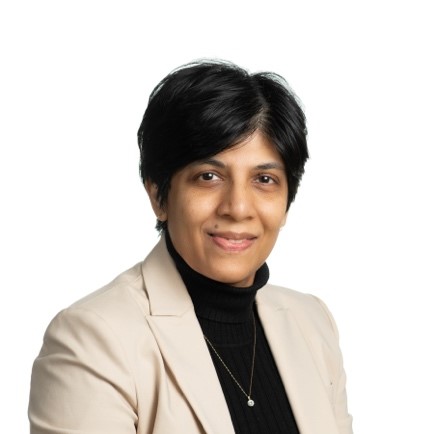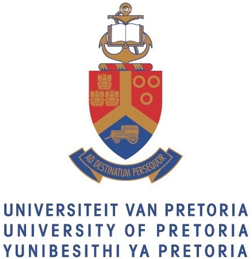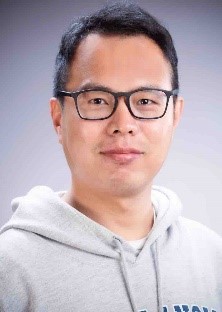Co-organised by IEEE Women in Computational Intelligence
Panel Aim
To discuss diversity and inclusion themes within the field of Computational Intelligence (CI) and explore the role of diversity and inclusion in designing responsible CI research and technological innovation.
Discussion themes include (but are not limited to):
- What do we mean by diversity and inclusion?
- Why is it important (in general) and specifically in Computational Intelligence?
- The impact of unconscious bias
- Building a culture of diversity and inclusion in tech.
- The role of IEEE TAB Diversity and Inclusion committee
Panel Co-chairs
Professor Keeley Crockett, Manchester Metropolitan University, UK.
Professor Svetlana Yanushkevich, University of Calgary, Canada
Panellists
- Ms Naeemeh Adel, PhD candidate, Manchester Metropolitan University, UK
- Prof. Dalma Novak, Chair IEEE TAB Diversity and Inclusion Committee, VP of Engineering at Octane Wireless, USA
- Prof. Nelishia Pillay, Professor at the University of Pretoria, South Africa
- Prof. Yanan Sun, College of Computer Science, Sichuan University, China.
- Prof. Bing Xue, Professor in Artificial Intelligence, and Program Director of Science in School of Engineering and Computer Science at Victoria University of Wellington.
Meet the Panel


Naeemeh Adel is an Iranian Muslim woman living in the UK. Naeemeh has completed her BSc in Computer Science from the University of Salford and MSc in Information systems from Manchester Metropolitan University. She is currently in her 5th year of her PhD entitled “Fuzzy Natural Language Similarity Measures Through Computing With Words” which she is studying part time. She is also a Tutor teaching Information Systems and Computing Fundamentals at Manchester Metropolitan University. Naeemeh is also currently leading Digital Skills Bootcamp projects within the University which are funded by the UK Government Department for Education. She is a student member of IEEE and a member IEEE WIE UKI and actively participates in STEM activities and public outreach. Her areas of research involves artificial intelligence using natural language, fuzzy logic and semantic systems in the field of computing with words.


Dalma Novak is VP of Engineering at Octane Wireless (formerly Pharad, LLC) where she develops high-performance RF-over-fiber technologies. Prior to co-founding Pharad in 2004, she spent 12 years as a Professor and Chair of Telecommunications in the Department of Electrical and Electronic Engineering at The University of Melbourne, Australia. Her research interests include microwave photonics, fiber-radio systems, wireless technologies, and optical communications. She has published more than 300 papers in these areas, including seven book chapters. In 2007 she was elected to the grade of IEEE Fellow for her contributions to enabling technologies for the implementation of fiber-radio systems. In 2018 she received the IEEE Photonics Society Engineering Achievement Award. Dalma is the 2021 – 2022 Chair of the IEEE Technical Activities Board (TAB) Committee on Diversity and Inclusion and is also a member of the IEEE Board of Directors for 2021 – 2022 as Director of Division X.


Nelishia Pillay is a Professor at the University of Pretoria, South Africa. She holds the Multichoice Joint-Chair in Machine Learning and SARChI Chair in Artificial Intelligence. She is chair of the IEEE Technical Committee on Intelligent Systems Applications, IEEE Task Force on Hyper-Heuristics and the IEEE Task Force on Automated Algorithm Design, Configuration and Selection. Her research areas include hyper-heuristics, automated design of machine learning and search techniques, combinatorial optimization, genetic programming, genetic algorithms and deep learning for and more generally machine learning and optimization for sustainable development. These are the focus areas of the NICOG (Nature-Inspired Computing Optimization) research group which she has established. She has published in these areas in journals, national and international conference proceedings. She has served on program committees for numerous national and international conferences and is a reviewer for various international journals.


Yanan Sun received a Ph.D. degree in engineering from the Sichuan University, Chengdu, China, in 2017. He is currently a Professor in the College of Computer Science, Sichuan University, China. Before that, he was a Research Fellow in the School of Engineering and Computer Science, Victoria University of Wellington, Wellington, New Zealand from June 2017 to March 2019. Dr. Sun’s research topics are evolutionary algorithms, deep learning, and evolutionary deep learning. He has published 35 peer-reviewed papers including 13 first/leading authored papers published in the prestigious IEEE Transactions and top-tier AI international conference including IEEE Trans. Evol. Comput., IEEE Trans. Cybern., IEEE Trans. Neur. Net. Lear, IEEE Trans. Parallel. Distrib. Syst. and IEEE Int. Conf. Comput. Vis. (ICCV). Four of them has been recognized Top 1% Highly Cited Paper and 0.1% Hot Paper in Essential Science Indicators (ESI) according to Thomson Reuters since 2020, two was awarded as the “Research Frontier” paper (only one per issue) and another one was awarded as “Excellent Paper” from IEEE Computational Intelligence Society. He is the leading organizer of the First Workshop on Evolutionary Deep Learning, the leading organizer of the Special Session on Evolutionary Deep Learning and Applications in CEC19-21, and the founding chair of the IEEE CIS Task Force on Evolutionary Deep Learning and Applications. His research output on evolutionary neural architecture search was shortlisted for the National Excellent Young Scholar of China in 2021, and ranked as “Excellence” under Horizon 2020’s Marie Sklodowska-Curie actions of Europe.


Bing Xue (M’10-SM’21) is currently a Professor in Artificial Intelligence, and Program Director of Science in School of Engineering and Computer Science at Victoria University of Wellington. She has over 300 papers published in fully refereed international journals and conferences and her research focuses mainly on evolutionary computation, machine learning, classification, symbolic regression, feature selection, evolving deep neural networks, image analysis, transfer learning, multi-objective machine learning. Prof. Xue is the Editor of IEEE Computational Intelligence Society (CIS) Newsletters, the Chair of IEEE Computational Intelligence Society (CIS) Task Force on Transfer Learning & Transfer Optimization, Vice-Chair of IEEE CIS Evolutionary Computation Technical Committee, Vice-Chair of IEEE Task Force on Evolutionary Feature Selection and Construction, and Vice-Chair IEEE CIS Task Force on Evolutionary Deep Learning and Applications. She has been a key organiser in many international conferences, and also served as associate editor of several international journals, such as IEEE Computational Intelligence Magazine and IEEE Transactions on Evolutionary Computation.


Svetlana Yanushkevich (SM IEEE 2004) is a full professor in the Department of Electrical & Software Engineering at Schulich School of Engineering (SSE), University of Calgary (UofC). She holds a Dr. Habilitated in Tech. Sci. (1999) from the Technical University of Warsaw, and joined the UofC in 2001.
She is a founder of the Biometric Technologies Laboratory at the UofC, www.ucalgary.ca/btlab
With her team in the Biometric Technologies Laboratory, she is developing novel decision support and risk assessment strategies based on machine reasoning, with applications to biometric-enabled access control and healthcare monitoring and diagnostics. She authored a monograph “Inverse Biometric Systems” (Taylor&Francis) and five other monographs and textbooks on the CI and digital design. She is also currently an Associate Dean, Equity, Diversity & Inclusion, and Research in the SSE at UofC. She chaired the Biometric Taskforce in the IEEE CIS in 2017 – 2020, and currently is a vice-chair of this Task Force, and a member of the ISATC.


Keeley Crockett currently leads the Computational Intelligence Lab and Machine Intelligence theme within Centre for Advanced Computational Science at Manchester Metropolitan University, Her main research interests include fuzzy systems, computational approaches to natural language processing, and computational intelligence for psychological profiling (comprehension and deception). She is leading work on Place based practical Artificial Intelligence, facilitating a parliamentary inquiry conducted in 2020 with Policy Connect and the All-Party Parliamentary Group on Data Analytics (APGDA) in June and July 2020 as part of Metropolis funding. She has and is working on numerous projects receiving grants from the European Union H2020 Programme for novel research, the academic co-lead in the ERDF £6m funded GM Artificial Intelligence Foundry, to Innovate UK funding where the focus is on knowledge transfer partnerships with business. Keeley is currently the Chair of the IEEE Women into Computational Intelligence sub-committee, Co-Chair of the IEEE WIE Educational Outreach sub-committee, IEEE UKRI SIGHT Ethics and Wellbeing officer and a member of numerous CIS subcommittees. She is a Senior Fellow of the Higher Education Academy. Keeley serves as an Associate Editor on the IEEE Trans. Emerging Topics in Computational Intelligence, IEEE Trans. Artificial intelligence and IEEE Trans on Fuzzy systems. She is the current Chair of the IEEE Task Force on Ethical and Social Implications of Computational Intelligence and will serve as Co-General Chair at IEEE SSCI, Orlando 2021. She is Track Chair AI and Big Data at IEEE ISC2 2021 IEEE International Smart Cities Conference – 2021 and Workshop Chair at 2021 IEEE International Humanitarian Technology Conference (IHTC 2021).